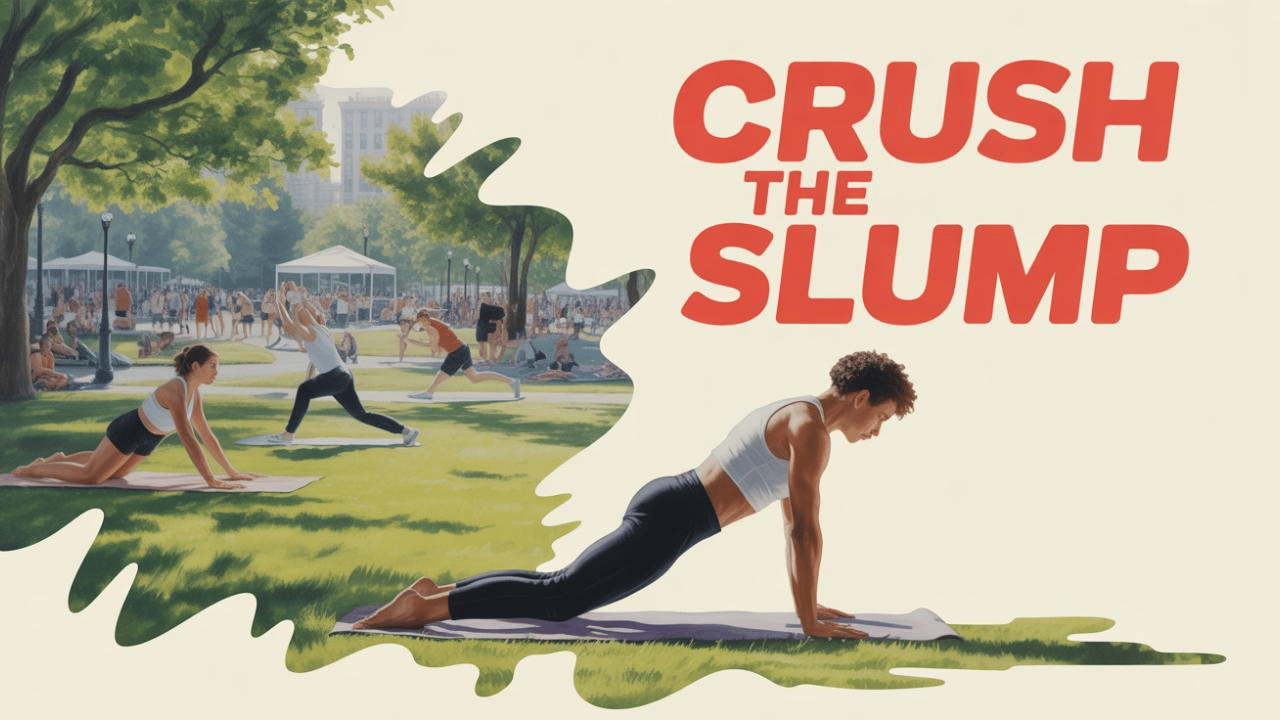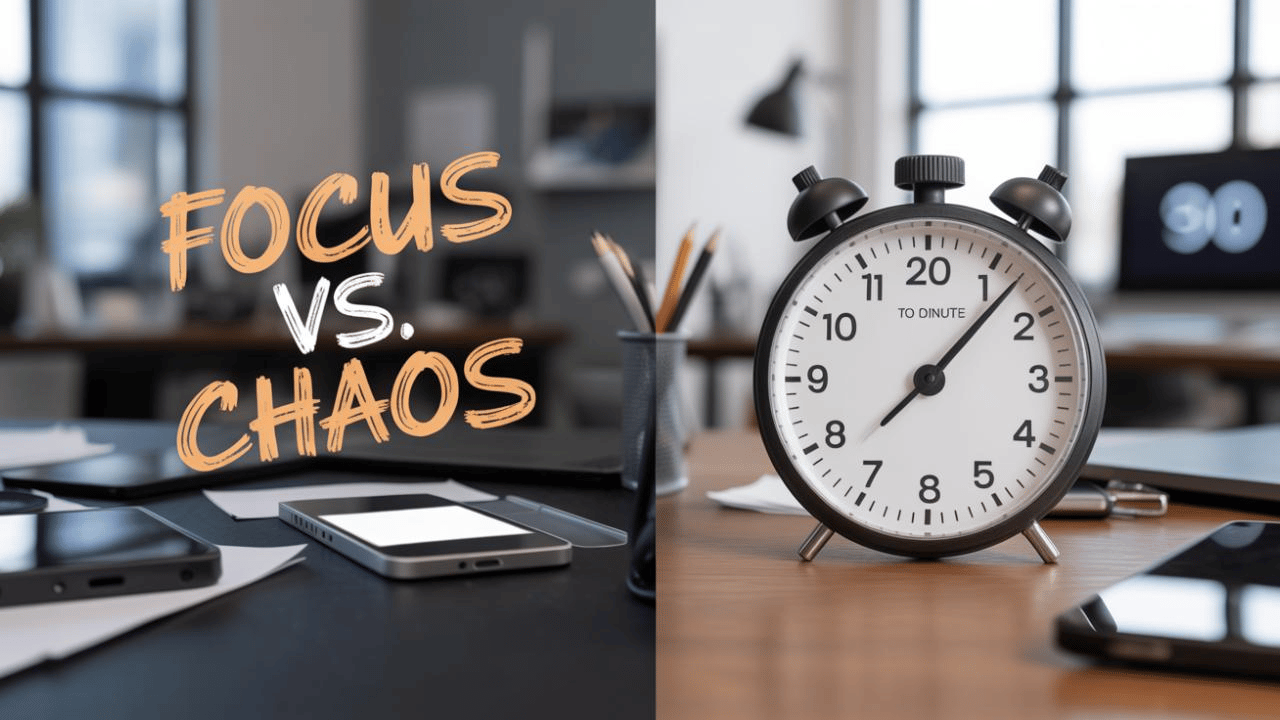- IVAN HUG
- Posts
- 30+ Year Veteran's 3-Wave biology Method to Triple Output ⚡
30+ Year Veteran's 3-Wave biology Method to Triple Output ⚡
You know that 3 PM brain fog?
That's not weakness. That's biology.
Your calendar says 9-5. Reality? You get maybe 3 genuinely productive hours. The rest? Fighting a current you can't see.

The World Economic Forum's 2024 finding: Aligning work with natural energy rhythms could add $1.3 trillion to the global economy by 2030.
That's the cost of forcing humans to work like machines.
YOUR BRAIN RUNS ON WAVES
Think ocean waves. Each builds, crests, recedes.
Your calendar treats you like a machine. Your biology operates like tides—predictable, powerful, indifferent to deadlines.
The science: Your brain maintains peak focus for 90 minutes. Then needs 15-20 minutes recovery.
Push through? Stress hormones flood. Strategic thinking shuts down.
Journal of Applied Psychology finding: Employees taking 15-minute breaks every 90 minutes reported 23% higher satisfaction and 17% lower stress than those grinding through.
Same work. Different experience.
When did you feel most mentally sharp yesterday? Take 30 seconds and think about it.
THE THREE WAVES RULING YOUR DAY
⚡ WAVE ONE: Strategic Power (8-11:30 AM)
Your morning wave is your strategic window.

Decision clarity peaks. Creative thinking sharpens. Problem-solving maxes out.
The data: Research analyzing 100,000+ university exams revealed peak cognitive performance between 11 AM-1 PM. Performance varies 9-40% based purely on timing.
Same person. Same task. Wildly different quality.
NASA's proof: Moving engineering design sessions to morning biological windows increased problem-solving speed 40%.
Not smarter engineers. Better timing.
What belongs here: → Complex problem-solving → Strategic decisions → Creative work requiring innovation
What to eliminate: → Email processing → Routine meetings without strategic purpose
Your morning protocol:
8-8:30 AM: Clear trivial decisions, prepare workspace
8:30-10 AM: First 90-minute strategic sprint (phone off, email closed)
10-10:15 AM: True recovery break (walk, rest, stretch—no screens)
10:15-11:45 AM: Second 90-minute strategic sprint
Protect these hours like your career depends on them.
Because it does.
🤝 WAVE TWO: Collaboration Window (11:30 AM-2 PM)
Mental energy drops. Digestion kicks in. Focus declines.

But emotional bandwidth stays intact. Social energy remains high.
This is biology's collaboration window.
Perfect for: → Team meetings → Client conversations → Email clearing → Relationship building → Project coordination
Avoid: → Starting complex new projects → Strategic planning sessions → High-stakes negotiations
Real-world example: Vanguard investment advisors moved client meetings to midday slots. Required emotional intelligence (still fully available) without demanding peak mental capacity.
Result? Client satisfaction increased. Morning productivity remained protected for portfolio strategy.
The hidden cost: Every strategic decision at 3 PM costs 2-3x the mental energy it would at 9 AM.
You're not working harder. You're paying compound interest on exhaustion.
🔧 WAVE THREE: Implementation (2-5 PM)
Post-lunch dip is real. Mental fatigue accumulates.
This isn't weakness—it's measurable biology.
Research shows early chronotypes decline 7.1% from morning to afternoon. Even late chronotypes drop 2.6%.

Perfect for: → Executing morning decisions → Routine administrative work → Physical tasks → Learning through passive input → Preparing tomorrow's priorities
Ruthlessly avoid: → Strategic planning → High-stakes decisions → Starting new complex work
The 3 PM strategy: Stop fighting it.
Take 15-20 minutes actual rest. Brief walk outside. Light movement.
Research confirms: Breaks only restore energy when genuinely different from work activity.
Case study: One precision farming company shifted 3 PM stakeholder calls to mornings. Afternoons became documentation time.
Same tasks. Fraction of energy cost. Dramatically better outcomes.
🍳 THE SECRET WEAPON: MEAL TIMING
Here's what most people miss: Meal timing affects energy more than meal content.

Northwestern University 2024 research: Identical calories, different timing produced dramatically different results.
Early eaters (breakfast by 8 AM): → Sustained energy → Better focus all day
Late eaters (breakfast after 10 AM): → Energy crashes → Poor afternoon performance
Same food. Different time. Completely different outcomes.
YOUR CHRONONUTRITION GUIDE
7-8 AM | LARGE BREAKFAST
Protein-focused: eggs, Greek yogurt, lean meats
Complex carbs: oatmeal
Healthy fats: avocado
This matches your body's natural morning energy spike.
12-1 PM | MODERATE LUNCH
Balanced protein and vegetables
Limited simple carbs
Maintains energy without massive insulin spikes.
6-7 PM | LIGHT DINNER
Lean protein and vegetables
Minimal carbs
Supports sleep quality and next morning's energy.
The insider secret: Executives eating protein breakfast by 7:30 AM gain an extra 90-minute strategic window before their first meeting.
Not because of food content. Because timing extends their biological peak.
🦉 YOUR CHRONOTYPE TRUTH
Not everyone peaks at the same time.

Nature Communications (2024) research distinguished "morning larks" from "night owls"—performance patterns differ measurably based on genetic factors up to 10% throughout the day.
You're not lazy if you don't peak at 8 AM.
You might be a late chronotype fighting your biology.
The career penalty nobody discusses: Late chronotypes earn 4% less on average.
Not because they're less capable. Because they're forcing morning performance when biology peaks later.
Think about this: Your entire career trajectory may have been shaped by when your biology peaks—not your intelligence or work ethic.
You've been penalized for genetics while being told it's about discipline.
CHRONOTYPE WORK STRATEGIES
Early chronotypes: → Strategic work: 8-11 AM → Meetings: 11 AM-1 PM → Implementation: 2-4 PM
Late chronotypes: → Warm-up period: 8-10 AM (routine tasks) → Strategic work: 10 AM-1 PM → Meetings: 1-3 PM → Implementation: 3-6 PM
Validated tool: Take the Morningness-Eveningness Questionnaire (MEQ)—research-backed assessment identifying your chronotype.
An early chronotype working late and a late chronotype working early are both fighting biology.
Neither is winning.
The best schedule isn't the corporate default. It's customized to your biological clock.
🌊 FORCING VS. FLOWING
Here's the game-changer: knowing when you're forcing versus flowing.

FORCING FEELS LIKE: → Rereading paragraphs three times → Second-guessing decisions → Needing multiple coffees → Clock-watching → Errors creeping in
FLOWING FEELS LIKE: → Time disappearing → Ideas connecting naturally → Work progressing smoothly → Sustained attention without effort → Quality output with less strain
The difference: Most people spend 60% of their day forcing. High performers spend 70% flowing.
They've aligned tasks to energy states.
YOUR STARTING POINT: THE 90-MINUTE EXPERIMENT
Tomorrow morning, try this:
One 90-minute sprint. Just one.

Pick your most important cognitive work. Close everything else. Phone off. Email closed.
Work with genuine focus for 90 minutes. When energy naturally dips (you'll feel it), stop.
Take 15 minutes true recovery. Walk outside if possible. Don't touch your phone.
Compare that 90 minutes to your usual scattered morning.
You'll shock yourself.
WHAT THIS MEANS FOR YOUR CAREER
THIS WEEK:
Map your natural energy pattern. Every 2 hours, note your energy level (1-10) and what you're doing.
By Friday, you'll see your biological rhythm clearly.
NEXT WEEK:
Schedule one important task during your peak window. Protect it ruthlessly.
WITHIN 30 DAYS:
Take the MEQ chronotype assessment. Adjust your schedule to match your biology, not corporate convention.
ONGOING:
Eat protein breakfast by 7:30 AM (or adjust for your chronotype). Track the difference in strategic capacity for two weeks.
💡 BEHAVIOR CHANGE THAT WORKS
Start ridiculously small. One 90-minute protected block weekly.

Prove the difference to yourself. Then expand.
Anchor new habits to existing routines. "After my 10 AM coffee, I take a 15-minute walk" beats vague "I should walk more."
Track forcing versus flowing. Simple tally marks throughout the day.
Awareness precedes change.
Energy-based habits beat time-based habits:
"I do strategic planning at 9 AM" becomes "I do strategic planning during my first energy peak."
This isn't semantic. It's fundamental.
You're designing around biology, not fighting it.
THE TRANSFORMATION STORY
Marcus scheduled strategic work at 3 PM because "that's when he had time."
Result? Important decisions made when mentally depleted. More time fixing mistakes. Vicious cycle of exhaustion.
Sofia scheduled strategic work 9-11 AM. Protected those hours like her life depended on them.
Result? Better decisions in less time. Sustainable output.
The difference wasn't discipline. It was alignment with biology.
THE TRUTH YOU NEED TO HEAR
You've spent years wondering why work feels so hard.
Questioning your discipline. Doubting your capacity.
Here's the truth: Your biology has been screaming the answer at you this entire time.
You weren't listening because nobody taught you to listen.
Now you know. Now you can align.
Now everything changes.
🎯 YOUR IMMEDIATE ACTION STEPS
1. TODAY: Take 30 seconds. Note when you felt most mentally sharp yesterday.
2. THIS WEEK: Map your energy every 2 hours. Rate 1-10. Track what you're doing.
3. TOMORROW: One 90-minute sprint during your natural peak. Phone off. Email closed.
4. NEXT WEEK: Schedule one important task during your peak window. Guard it ruthlessly.
5. WITHIN 30 DAYS: Take the MEQ assessment. Customize your schedule to your biology.
THE BOTTOM LINE
Elite performers don't fight their biology. They architect around it.
Your calendar might say 9-5. Your biology says 90-minute waves of peak performance punctuated by mandatory recovery.
Which one are you optimizing for?
Same capabilities. Different understanding.
Choose alignment over exhaustion.
💬 LET'S DISCUSS
When do you feel most mentally sharp during your day?
What high-stakes task are you currently forcing during your energy trough?
Hit reply and share your experience. I read every response and reply personally to those who share specific insights about their journey.
The most interesting career breakthroughs happen in these conversations.

